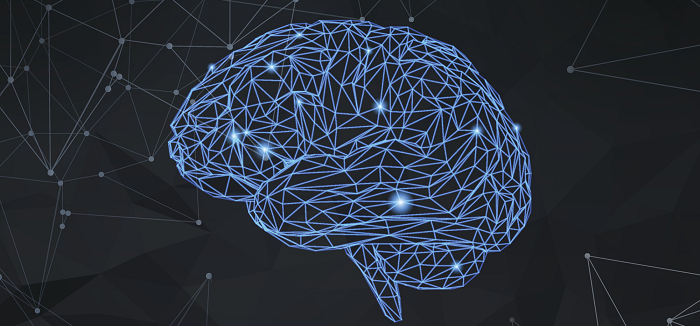Head to a conference in any vertical these days, and you’re guaranteed to find a session around artificial intelligence and its potential to change the industry. A simple Google search of artificial intelligence immediately turns up results that span how AI could impact everything from space systems to art, from marketing to music.
While we’re not sure AI is going to solve every problem known to man, we can all agree that AI has gained momentum since the science of machine learning was introduced back in the 1950s.
Still, alongside the Google search results that discuss how AI will positively reshape the world we currently know, there are equally as many posts discussing the negative implications of AI: Will it destroy jobs? Can we trust it? Earlier this month, Tesla’s CEO Elon Musk called for the regulation of AI, having previously suggested AI could be humanity’s “biggest existential threat.”
It raises the question that was posed at a session at the Special Library Association’s annual conference in June: Is artificial intelligence just hype? Is this real? And if AI is taking over the world, where does it leave us, humans?

We sat down with one of the speakers from the SLA session, Ethan Redrup of the Martec Group, to dig further into how artificial intelligence will impact information managers and corporate librarians moving forward. Here is a look at his thoughts:
CCC: It’s a common worry across industries that artificial intelligence could someday impact job security. Do corporate librarians need to be worrying about this today?
ER: I don’t think embracing AI or not is an option at this point. It is coming, though I think in a less-dramatic fashion than arguments between Zuckerberg and Elon Musk would have you believe.
Job security is an interesting prospect, and it varies by the type of organization you’re with.
If you’re with a large organization that has the resources to implement extensive AI solutions, then AI will be capable of taking over many of your daily tasks. The role of an information professional in that situation needs to adapt and create value through higher-level strategic thinking that AI isn’t (yet?) capable of. If AI can run your searches and return results faster than you can, great! Utilize that and save yourself time to focus on other things, or write up more detailed summaries with strategic implications so that you generate even more value than you did before AI took over some tasks.
At a smaller organization, it will be a different story. Custom AI solutions are extremely resource intensive and probably out of reach for many organizations. They’ll likely experience AI through piecemeal solutions they buy from vendors to automate a few tasks that can be done faster.
Information professionals in this situation will likely find themselves focusing even more on AI than those at larger organizations for two reasons:
- They might be the only person in their organizations who have visibility into AI’s functional uses in the info world,
- They’ll get left behind in efficiency by larger organizations if they ignore AI.
The only way I see AI threatening job security is if you focus on manual tasks, and more “doing” than “thinking.”
CCC: What’s on the horizon for AI that could be particularly of interest to information professionals?
The newer technologies that have me excited are based on human language, and utilize it in a few different ways.
Computers have never been able to understand human language, and coding was kind of a “gatekeeper” for who could utilize computer systems to their full potential. Not everyone has the time, resources, or aptitude to become a coder.
As we go down the path of teaching computers human language, we can programmatically analyze and categorize content that already exists, and then search for it more humanly. A search process with advanced and integrated Natural Language Processing technology would begin with a standard search request. A question, let’s say “Why did the Roman Empire fall?”, would be posed. Rather than look at a collection of words and try to find them occurring together, this search would understand we’re looking for a detailed explanation (why), about a specific entity (The Roman Empire), and information relating to an event or action (collapse and dissolution). Search engines like this are not that far away, especially as more advanced ones include related terms and synonym searching. The next step is critical – developing a deeper understanding of the available material. Modern search engines get by pretty well here, but still require a person to look through pages of results to find what’s relevant, and try multiple searches on multiple engines to find items that were missed. Search engines that could operate on concepts and entities rather than terms are going to be a huge step in information searching technology.
On the other end, Natural Language Generation is a cool technology that I see being rolled out more and more in the corporate world over the next few years. It is already implemented in limited ways, such as writing news articles for sports scores and corporate financial results, but there is much more to come.
Companies (and governments) have the same problem with their internal information that should be used to make better decisions – no one reads it. Whether it’s time constraints, difficulty accessing the information, or most of a given report being irrelevant, stakeholders are missing out on key insights that they need to make better decisions.
With the above technology having an understanding of internal data, Natural Language Processing will be able to generate customized, natural-sounding reports with just information relevant to a specific person. Picture an automated Twitter feed of operational efficiencies going to a manufacturing engineer, or job market information going to a recruiter, all sounding just as natural as if an analyst took the time to write it. When we look at these customized reports, the irrelevant information being excluded is just as important as relevant information being included.
CCC: Moving forward, how can librarians leverage AI to reach their business goals?
Think about the most boring or repetitive tasks you do, and what you could do instead if those were taken care of for you. My perspective as a competitive intelligence analyst and a market researcher is probably a little different than that of more traditional information professionals, but many of the tasks we do are the same.
One of the biggest AI technologies out there that can help us is summarization. By looking at more than just commonly used words and shifting to techniques like entity identification and using the relationships between words, AI applications have made great strides in summarizing vast amounts of content.
In the data-saturated world we live in, utilizing this aspect of AI can help us spend less time determining what’s relevant and more time using that relevant content to provide value for our organizations. We will be able to respond to more requests for information, provide better and more complete reports on what information exists, and reduce turnaround times all while utilizing the same number of people.
Check out Copyright Clearance Center’s solutions for information and knowledge professionals.


